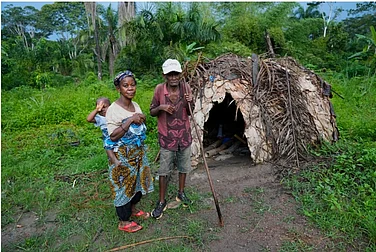The National Commission for Women (NCW) and State Women Commissions (SWCs) have taken a significant step toward strengthening women’s empowerment across India by hosting a two-day meeting on December 5 and 6. The event emphasized collaborative efforts in addressing pressing issues such as domestic violence, human trafficking, cyber laws, the Prevention of Sexual HaraNCW and SWCs Collaborate to Empower Women Nationwidessment (PoSH) Act, and child marriage.
NCW And SWCs Unite To Strengthen Women’s Rights In India
NCW and SWCs collaborate to tackle domestic violence, trafficking, and cybercrime, empowering women nationwide.

Senior officials and chairpersons from SWCs gathered to explore coordinated strategies aimed at creating a more unified and impactful approach to safeguarding women's rights and welfare. An official statement noted that the meeting sought to enhance policy advocacy, research initiatives, and capacity-building efforts, ensuring a robust and comprehensive response to the challenges faced by women in the country.
Key discussions revolved around improving the enforcement of legal protections for women, including laws against domestic violence. With the rise of human trafficking as a global concern, a substantial focus was placed on combating this issue through stronger legal frameworks and enforcement mechanisms. The evolving threat of cybercrime was also highlighted, with efforts directed toward strengthening cyber laws to protect women from digital harassment and exploitation.
The PoSH Act, which aims to create harassment-free workplaces and educational environments, was a central topic. A dedicated workshop on the Act was organized, equipping participants with practical knowledge to improve its implementation and overcome challenges. Discussions delved into creating safer spaces for women and ensuring that the Act’s provisions are effectively enforced across sectors.
The meeting also tackled the growing menace of deepfakes, digitally manipulated media often used for harassment or defamation. A specialized session educated attendees on recognizing and combating such threats, providing tools to protect women from these modern abuses.
SWCs contributed to the dialogue by sharing their latest research, best practices, and state-level initiatives designed to empower women. These exchanges highlighted the innovative strategies being employed across regions, fostering knowledge-sharing that can enhance nationwide efforts.
The meeting concluded with a renewed commitment to collaboration. Both the NCW and SWCs emphasized their shared goal of improving the lives of women by addressing systemic challenges through unified action.
This initiative reflects the resolve of the NCW and SWCs to foster a safer and more equitable environment for women in India. By addressing critical issues, strengthening laws, and promoting awareness, the commissions aim to ensure women’s empowerment becomes a tangible reality. Their partnership marks a significant step forward in creating a future where women can thrive in every sphere of life.
(This article is a reworked version of a PTI feed.)

















